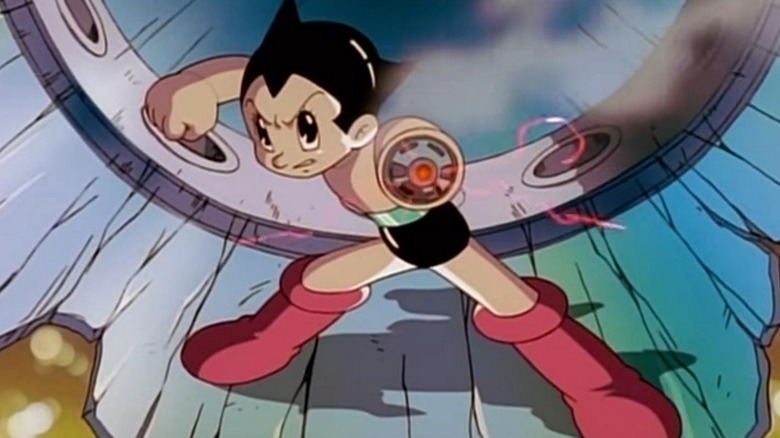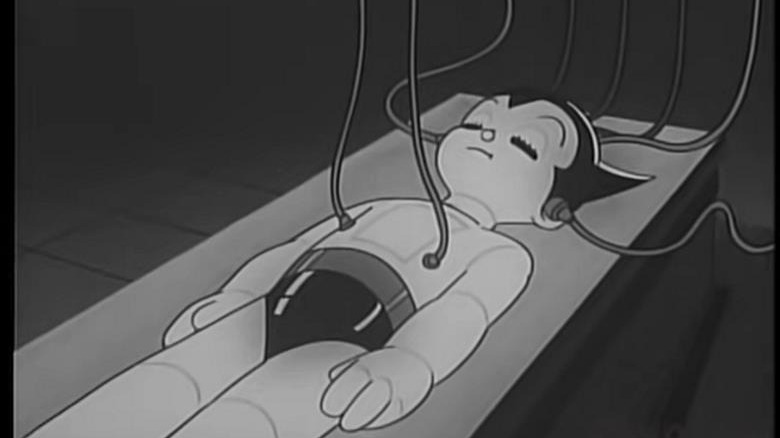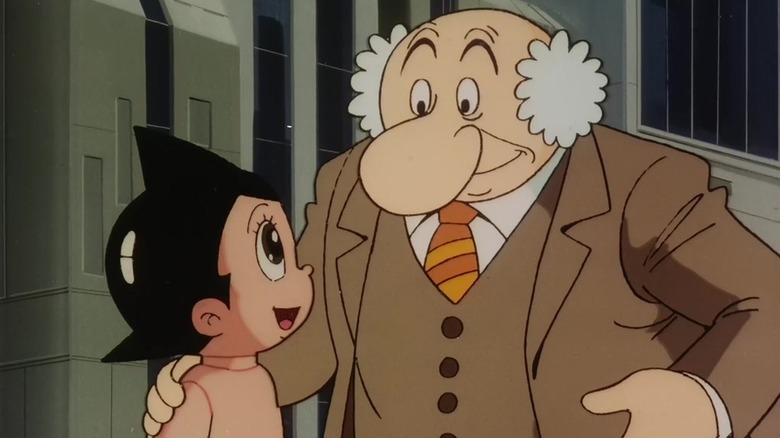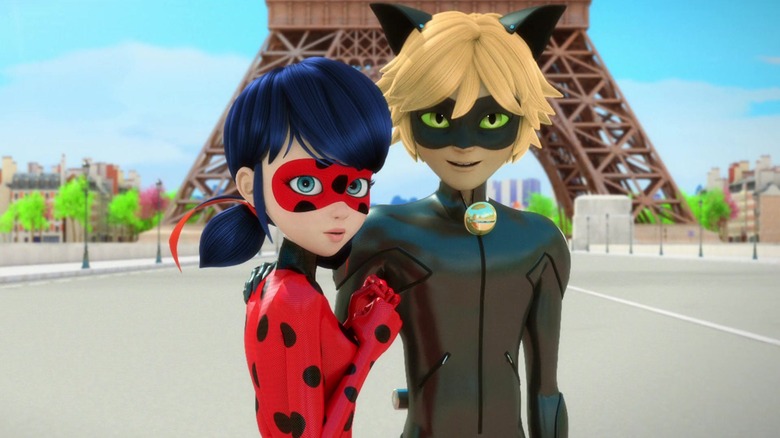Astro Boy Reboot: Everything We Know So Far
It's tough to describe just how big of a deal "Astro Boy" is. Created by Osamu Tezuka in 1952, it's the tale of a boy-shaped robot named Atom who fights in the future to protect the lives of both robots and humans. The "Astro Boy" comic was a success, selling over a hundred million copies over Tezuka's lifetime and providing him with the funds to draw even more exciting comics. The anime series, which aired in 1963, was perhaps even more important. Tezuka's Mushi Productions pioneered the use of cost-cutting techniques to release animation quickly and cheaply on a television budget, setting a standard that paved the way for anime's success and perhaps planted the seeds for its future destruction. (Curious readers would be wise to seek out Jonathan Clements's "Anime: A History" for further information.) Later that year, "Astro Boy" was localized for release on US television, spurring demand among English-speaking audiences for further anime productions like "Speed Racer" and "Gigantor."
The story of "Astro Boy" has been retold many times and in many flavors. The anime series was remade in 1980, and then once again in 2003. Manga artist Naoki Urasawa adapted one of the comic's best-known story arcs as "Pluto," a gritty noir retelling that draws upon contemporary politics. My personal favorite is the video game "Astro Boy: Omega Factor" for GameBoy Advance, which combined the world of "Astro Boy" with other Tezuka classics like "Black Jack" and "Phoenix." Joining these and many other productions, both successful and not, is a new CG reboot made in collaboration with the French studio Method Animation, Monaco-based Shibuya Productions and Tezuka Productions.
A boy remade
At this time, there has been no word as to when "Astro Boy" might air. The poster released to commemorate the announcement simply reads "coming soon." What I find most fascinating is that this is not the first attempt by Shibuya Productions to reboot "Astro Boy." A teaser trailer was released in 2014, promising a 26-episode series in collaboration with the French studio Caribara Animation. A poster featuring character art was released one year later at Monaco Anime Game International Conferences (MAGIC.) This series was to be a 2D production with CG elements, rather than the full CG production promised by Method Animation. But the series never materialized. Whether due to behind-the-scenes struggles, technological challenges, or simple inertia, it appears that the version of "Astro Boy" promised by Shibuya Entertainment years ago has been subsumed by this new project.
Weirdly enough, the change in hands between the 2D and CG versions of this project mirror the evolution of one of Method Animation's best-known productions: "Miraculous: Tales of Ladybug and Cat Noir," made in collaboration with Zagtoon and Japanese animation giant Toei. The seed of what became "Miraculous" was first shopped around as a 2D proof of concept trailer that took heavy aesthetic inspiration from Toei magical girl shows like "Pretty Cure." Rather than make the full series in this 2D style, "Miraculous" instead committed to CG for increased marketability abroad. I personally prefer the look of both the 2D version of "Astro Boy" and "Miraculous" to the 3D version of "Miraculous." But then, funding a full television series is a very different proposition from a two-minute teaser.
What we think the new Astro Boy will be about
Like much of Tezuka's work, "Astro Boy" tackled contemporary issues like discrimination, nuclear power, and the Vietnam War. The original US anime release jettisoned some of this material to avoid aggravating television network executives at the time. These days, I would imagine that the question is not so much if audiences can handle 'Astro Boy'" uncut, but instead how "Astro Boy" might be updated for today's children. Two worthwhile animated adaptations in the spirit of the original comic were released in 1980 and 2003 respectively. The "Astro Boy" comic itself is available in English and many other languages. A new "Astro Boy" series need not be faithful so long as it lives up to the spirit of Tezuka and the high standard of earlier adaptations.
For its part, the Variety article that announced the reboot suggests the new series "will address ... the impact of the Internet, social media and the damages caused to the environment by humans." Social media and the internet have played starring roles in reboots of classic Japanese comics before; the recent adaptation of influential horror series "Gegege no Kitaro ” began with an annoying YouTuber being transformed into a tree by an evil spirit. A few years earlier, the ambitious "Gatchaman Crowds" (a reimagining of a series Americans may know as "Battle of the Planets") situated its superpowered cast in a world of social networks, politics and runaway hate movements. I don't know if the staff behind the new "Astro Boy" series will have the guts to swing the bat as hard as the team behind "Gatchaman Crowds" or even "Kitaro." But if they truly mean to follow Tezuka's example, they better swing for the fences.
What we know about the Astro Boy cast and crew
The new Astro Boy is directed by Thomas Astruc, creator of the aforementioned "Miraculous: Tales of Ladybug and Chat Noir." Astruc contributed storyboards to past anime-inspired French cartoons like "W.I.T.C.H." and "Totally Spies." "Miraculous" borrows from magical girl series like "Sailor Moon" as well as the Marvel Cinematic Universe. While "Sailor Moon" did not shy from subjecting its cast to trauma and even death, "Miraculous" is consciously kid-friendly and optimistic. It should be no surprise that both Shibuya Productions and Tezuka Productions have chosen Astruc and Method Animation; not just due to the quality of their work, but because they've shepherded four complete seasons of "Miraculous" with a fifth on the way.
For his part, Astruc appears to be very excited to be working on the new "Astro Boy." "In the strange world we live in today," he says in the Variety feature, "everybody needs Astroboy to come back!" Astruc is just one of many artists to be influenced by Tezuka. But then, Tezuka has competition now. Artists who grew up emulating Tezuka (not to mention, artists from Tezuka's era who were as good if not better) have together raised the bar for what anime and manga can accomplish. Tezuka fought hard in his time to measure up to contemporary artists he was terrified would usurp his legacy. The new "Astro Boy" reboot doesn't need to measure up to Tezuka's ambitions, but part of me hopes that the crew at Method Animation at least tries. Astro Boy isn't the only game in town anymore, but I'd love to see him come back for another round.



